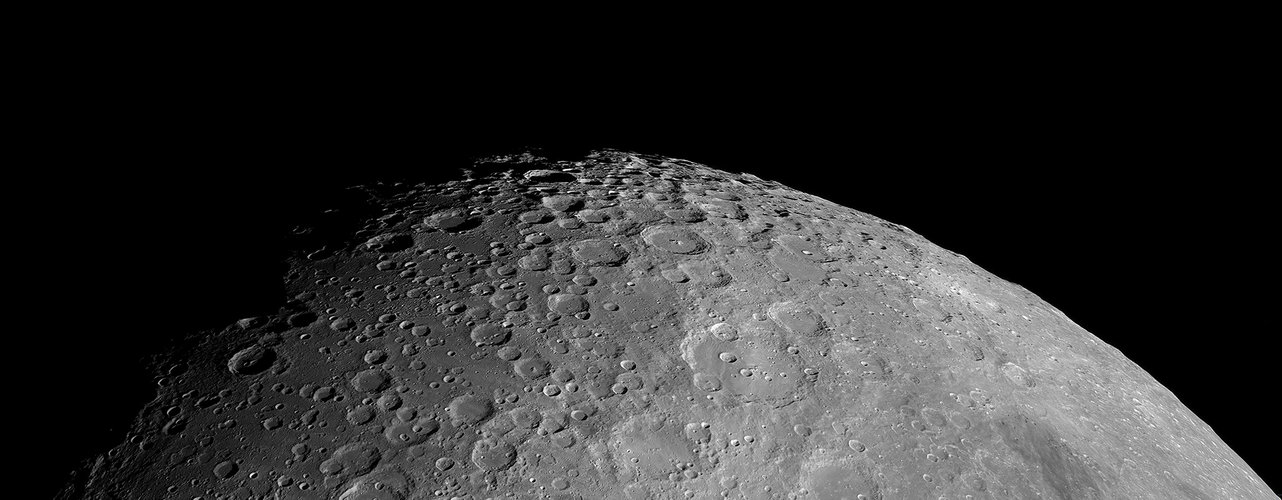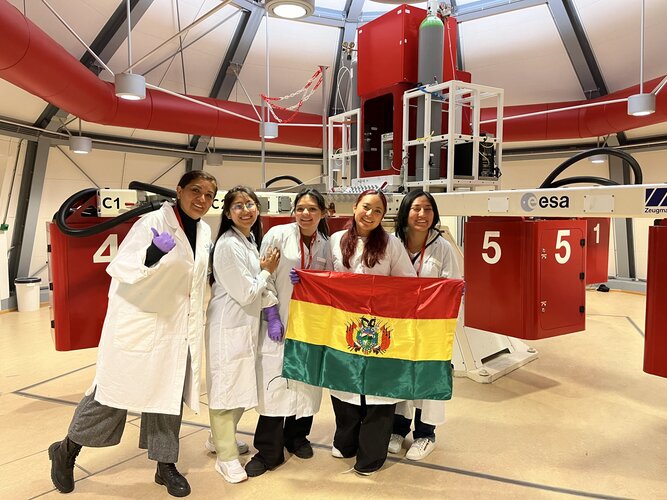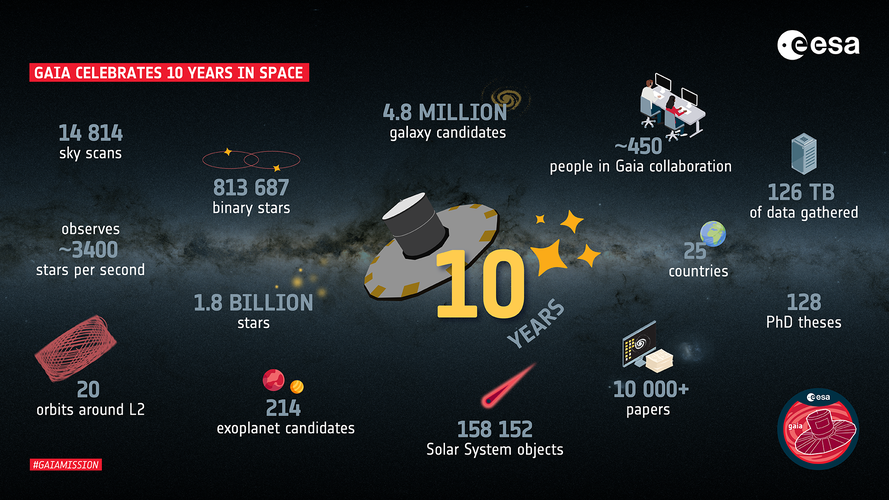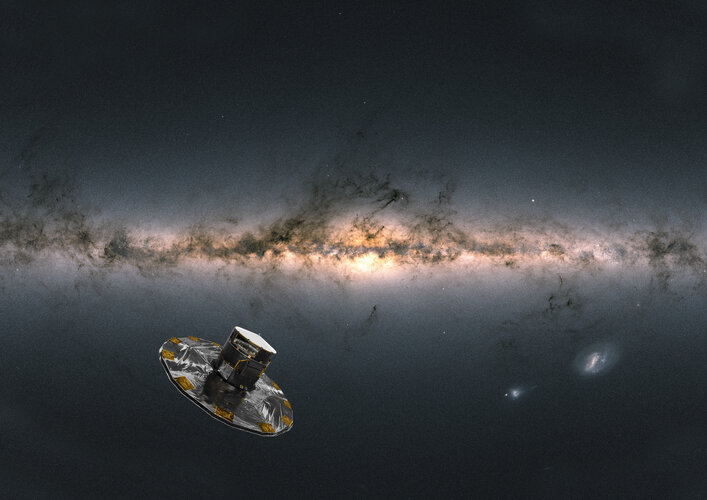
Copernical Team
ESA uses terrestrial rocks to recreate the Moon’s surface

Two state-of-the-art ESA facilities are working closely to develop a simulated lunar environment that will serve as a proving ground for future exploration technologies.
China's civil military dual-use space strategy
 China has taken another significant step in enhancing its space-based Earth observation (EO) capabilities with the successful launch of the Yaogan-41 satellite. This latest addition to China's satellite constellation was launched from the Wenchang Spacecraft Launch Site in Hainan province, marking a continuation of the nation's ambitious foray into space technology.
The mission was execute
China has taken another significant step in enhancing its space-based Earth observation (EO) capabilities with the successful launch of the Yaogan-41 satellite. This latest addition to China's satellite constellation was launched from the Wenchang Spacecraft Launch Site in Hainan province, marking a continuation of the nation's ambitious foray into space technology.
The mission was execute Accurate snow mapping achieved in Switzerland through innovative AI-satellite technology
 Switzerland's majestic mountains, a haven for winter sports enthusiasts and a critical area for hydropower generation, are now subject to a novel method of snow depth measurement. This fresh approach, developed by a collaborative effort between ETH Zurich and the Swiss company ExoLabs, utilizes artificial intelligence (AI) and satellite images, marking a significant advancement in environmental
Switzerland's majestic mountains, a haven for winter sports enthusiasts and a critical area for hydropower generation, are now subject to a novel method of snow depth measurement. This fresh approach, developed by a collaborative effort between ETH Zurich and the Swiss company ExoLabs, utilizes artificial intelligence (AI) and satellite images, marking a significant advancement in environmental Bolivia’s hypergravity blood cell test for astronaut health

The latest international group to employ ESA’s hypergravity-generating Large Diameter Centrifuge is an all-female team from Bolivia, with access sponsored by the United Nations and ESA. The researchers are investigating whether the high gravity levels experienced during rocket launches might contribute to the anemia afflicting many astronauts in space.
Gaia's 10th anniversary
 Image:
Image:
Ten years ago, on 19 December 2013, ESA’s billion star-mapping satellite Gaia launched. Since then, Gaia has been scanning the sky and gathering an enormous amount of data on the positions and motions of 1.8 billion stars, enabling numerous discoveries about the history of our galaxy.
Gaia’s catalogue is ever-growing containing data on stars and other cosmic objects such as asteroids in our Solar System, exoplanets, binary stars, and other galaxies. The Gaia collaboration, consisting of about 450 people in 25 countries, prepares the data for scientific use. This has resulted in publications of over 10 000 scientific papers
Gaia’s decade of discoveries: unravelling the intricacies of our galaxy

Hera’s wings of power
 Image:
Hera’s wings of power
Image:
Hera’s wings of power After a 12-day hiatus, launches resume on the Space Coast
 2023 has been the busiest year for spaceports around the world. A SpaceX Falcon 9 rocket successfully launches a batch of Starlink satellites from Cape Canaveral Space Force Station, Florida, on December 18 at 11:01 p.m. EST (0401 UTC Dec. 19).
A stormy weather that swept through Florida last week delayed the first launch attempt at the T-1 minute mark due to high ground-level winds, and h
2023 has been the busiest year for spaceports around the world. A SpaceX Falcon 9 rocket successfully launches a batch of Starlink satellites from Cape Canaveral Space Force Station, Florida, on December 18 at 11:01 p.m. EST (0401 UTC Dec. 19).
A stormy weather that swept through Florida last week delayed the first launch attempt at the T-1 minute mark due to high ground-level winds, and h The feline frontier: NASA sends cat video from deep space
 NASA on Monday announced it had used a state-of-the-art laser communication system on a spaceship 19 million miles (31 million kilometers) away from Earth - to send a high-definition cat video.
The 15-second meow-vie featuring an orange tabby named Taters is the first to be streamed from deep space, and demonstrates it's possible to transmit the higher-data-rate communications needed to sup
NASA on Monday announced it had used a state-of-the-art laser communication system on a spaceship 19 million miles (31 million kilometers) away from Earth - to send a high-definition cat video.
The 15-second meow-vie featuring an orange tabby named Taters is the first to be streamed from deep space, and demonstrates it's possible to transmit the higher-data-rate communications needed to sup NASA's GUSTO Prepares to Map Space Between the Stars
 On a vast ice sheet in Antarctica, scientists and engineers are preparing a NASA experiment called GUSTO to explore the universe on a balloon. GUSTO will launch from the Ross Ice Shelf, near the U.S. National Science Foundation's McMurdo Station research base, no earlier than Dec. 21.
GUSTO, which stands for Galactic/Extragalactic ULDB Spectroscopic Terahertz Observatory, will peer into th
On a vast ice sheet in Antarctica, scientists and engineers are preparing a NASA experiment called GUSTO to explore the universe on a balloon. GUSTO will launch from the Ross Ice Shelf, near the U.S. National Science Foundation's McMurdo Station research base, no earlier than Dec. 21.
GUSTO, which stands for Galactic/Extragalactic ULDB Spectroscopic Terahertz Observatory, will peer into th 
